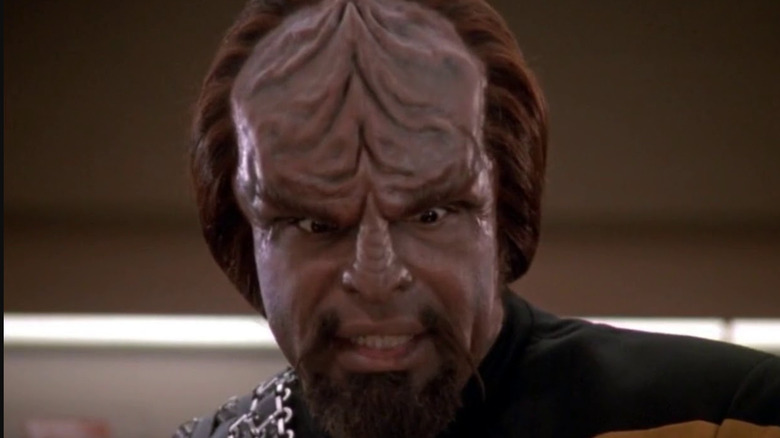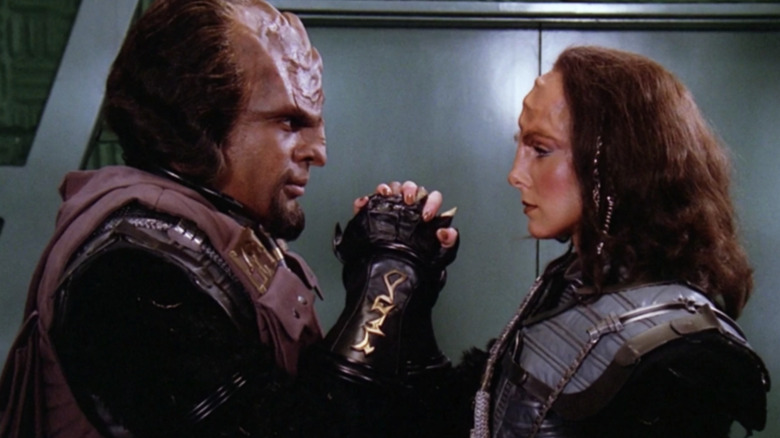Who Actually Created The Klingon Language In Star Trek?
When it comes to "Star Trek" aliens, the Klingons are second in popularity only to the Vulcans. Often serving as primary antagonists, especially in "Star Trek: The Original Series" and its films, the warmongering Klingons became an iconic part of that universe. And as the "Star Trek" mythos deepened over the years, so too did that of the Klingons. What started out as a vicious warrior race in perpetual conflict with the Federation soon became a tentative but respected ally with a strong culture of loyalty and honor.
This was most outwardly exemplified in Lieutenant Commander Worf (Michael Dorn), the Klingon Federation officer who served as a trusted member of the crews of both the Enterprise and Deep Space Nine. However, the Klingons' development is also shown in their visual design, the inclusion of their distinctive head ridges, and their culture. And when it comes to culture, no other element of "Star Trek" displays the evolution of the Klingons more than their iconic constructed language.
Since it was first spoken out loud in 1979's "Star Trek: The Motion Picture," the Klingon language has become an institution among certain die-hard Trekkies. As it evolved in later films and shows, it became more robust, and fans began learning to speak it themselves. Some fans can hold entire conversations in Klingon, and people have scripted both a play (via The Wall Street Journal) and an opera (via The New York Times) in the language. But that begs the question, who actually created the Klingon language, and how did they make it so complex?
Marc Okrand is science fiction's finest language nerd
The most surprising thing about the Klingon language might just be that its original creator was actually one of the original cast members, James Doohan, who played Scotty. According to StarTrek.com, he was the one who came up with the few spoken lines of Klingon in the first "Star Trek" film. However, during the production of "Star Trek II: The Wrath of Khan," executive producer Harve Bennett came into contact with an old friend named Marc Okrand, a professional linguist. He soon enlisted Okrand to write the lines spoken in Vulcan in "Wrath of Khan" and fully flesh out Klingon in its sequel, "Star Trek III: The Search for Spock." Afterward, Okrand authored the official Klingon dictionary and became the father of science fiction's most well-known language.
"I wrote 'The Klingon Dictionary' hoping that people would like it, of course, but I honestly expected that people would look at it, try to say a few words – maybe memorize one or two – and that would be it. I never imagined that people would study it so seriously," Okrand told StarTrek.com. "When I hear people I've never met before ... speaking the language, it's still an odd sensation."
Over the years, Okrand further built upon the Klingon language in later films and series, although writers would often rely solely on "The Klingon Dictionary." Even so, you can hear Okrand's work in nearly every alien language in every iteration of "Star Trek," including the more recent "Star Trek: Discovery."

